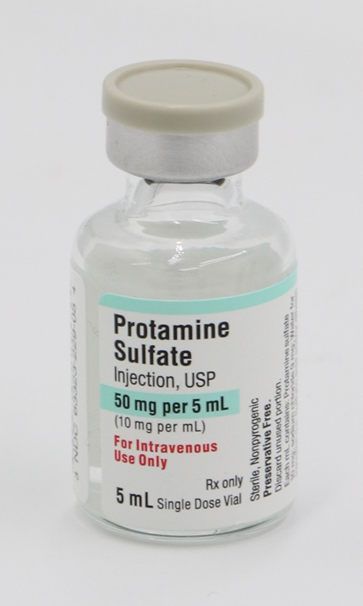A nurse is providing teaching to a client who has hypertension and a new prescription for captopril. Which of the following instructions should the nurse provide?
Expect to gain weight while taking this medication.
Do not use salt substitutes while taking this medication.
Count your pulse rate before taking the medication.
Take the medication with food.
The Correct Answer is B
Choice A reason: Expecting to gain weight while taking this medication is not a correct instruction, as it may discourage the client from adhering to the treatment and may worsen the hypertension. Captopril is an angiotensin-converting enzyme (ACE) inhibitor that lowers the blood pressure by preventing the formation of angiotensin II, a potent vasoconstrictor. Captopril does not cause significant weight gain, but it may cause fluid retention or edema in some cases. The nurse should advise the client to monitor the weight daily and report any sudden or excessive increase to the provider.
Choice B reason: Not using salt substitutes while taking this medication is a correct instruction, as it may prevent the risk of hyperkalemia, a potentially life-threatening condition. Captopril may increase the potassium level in the blood by reducing the secretion of aldosterone, a hormone that regulates the sodium and potassium balance. Salt substitutes may contain potassium chloride, which may further elevate the potassium level. The nurse should advise the client to avoid salt substitutes and high-potassium foods, such as bananas, oranges, or tomatoes, and to have regular blood tests to check the electrolyte levels.
Choice C reason: Counting the pulse rate before taking the medication is not a necessary instruction, as it may not reflect the effect of the medication on the blood pressure. Captopril does not affect the heart rate significantly, but it may lower the blood pressure too much, especially in the first few weeks of treatment or after a dose increase. This may cause hypotension, dizziness, or fainting. The nurse should advise the client to monitor the blood pressure regularly and report any symptoms of hypotension to the provider.
Choice D reason: Taking the medication with food is not a correct instruction, as it may reduce the absorption and effectiveness of the medication. Captopril should be taken on an empty stomach, at least one hour before or two hours after a meal, to ensure optimal bioavailability. The nurse should advise the client to take the medication at the same time every day and to avoid skipping or doubling the doses.
Nursing Test Bank
Naxlex Comprehensive Predictor Exams
Related Questions
Correct Answer is C
Explanation
Choice A reason: Vitamin K is the antidote for warfarin, not heparin. Vitamin K reverses the effects of warfarin by increasing the synthesis of clotting factors in the liver.
Choice B reason: Glucagon is the antidote for insulin, not heparin. Glucagon increases the blood glucose level by stimulating the breakdown of glycogen in the liver.
Choice C reason: Protamine is the antidote for heparin, not vitamin K or glucagon. Protamine neutralizes the effects of heparin by binding to it and forming a stable complex.

Choice D reason: Iron is not an antidote for any anticoagulant. Iron is a mineral that is essential for the production of hemoglobin and red blood cells.
Correct Answer is A
Explanation
Choice A reason: Giving the medication in the morning daily is a correct instruction, as it helps to prevent asthma attacks throughout the day and night. Montelukast is a leukotriene receptor antagonist that blocks the inflammatory response and bronchoconstriction caused by leukotrienes. Montelukast has a long duration of action and can be given once a day, preferably in the evening or at bedtime. However, for children who have exercise-induced asthma, the medication can be given in the morning to prevent exercise-induced bronchospasm.
Choice B reason: Administering the granules mixed with 20 oz of water is not a correct instruction, as it may reduce the absorption and effectiveness of the medication. Montelukast granules should be administered within 15 minutes of opening the packet and can be mixed with a small amount of soft food, such as applesauce, mashed carrots, or ice cream. The granules should not be mixed with liquids, such as water, juice, or milk, as they may dissolve and lose their potency.
Choice C reason: Giving the medication at the onset of wheezing is not a correct instruction, as it may not provide immediate relief of the symptoms and may delay the use of a rescue inhaler. Montelukast is not a bronchodilator and does not work quickly to open the airways. Montelukast is a preventive medication that should be taken regularly to reduce the frequency and severity of asthma attacks. The child should use a short-acting beta-agonist, such as albuterol, for the quick relief of wheezing.
Choice D reason: Administering the medication 2 hr before exercise is not a correct instruction, as it may not prevent exercise-induced bronchospasm and may interfere with the daily dosing schedule. Montelukast should be taken once a day, preferably in the evening or at bedtime, to provide consistent protection against asthma triggers. However, for children who have exercise-induced asthma, the medication can be given in the morning to prevent exercise-induced bronchospasm. The child should also use a short-acting beta-agonist before exercise, as needed.
Whether you are a student looking to ace your exams or a practicing nurse seeking to enhance your expertise , our nursing education contents will empower you with the confidence and competence to make a difference in the lives of patients and become a respected leader in the healthcare field.
Visit Naxlex, invest in your future and unlock endless possibilities with our unparalleled nursing education contents today
Report Wrong Answer on the Current Question
Do you disagree with the answer? If yes, what is your expected answer? Explain.
Kindly be descriptive with the issue you are facing.
